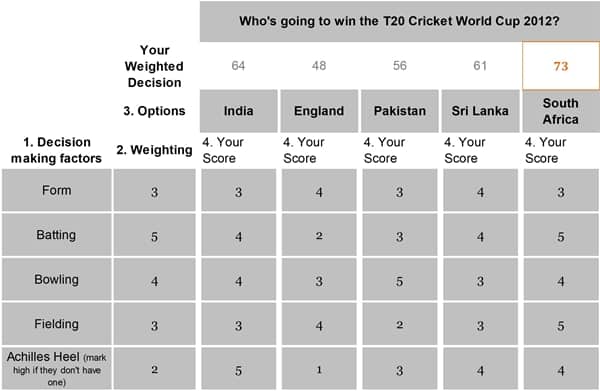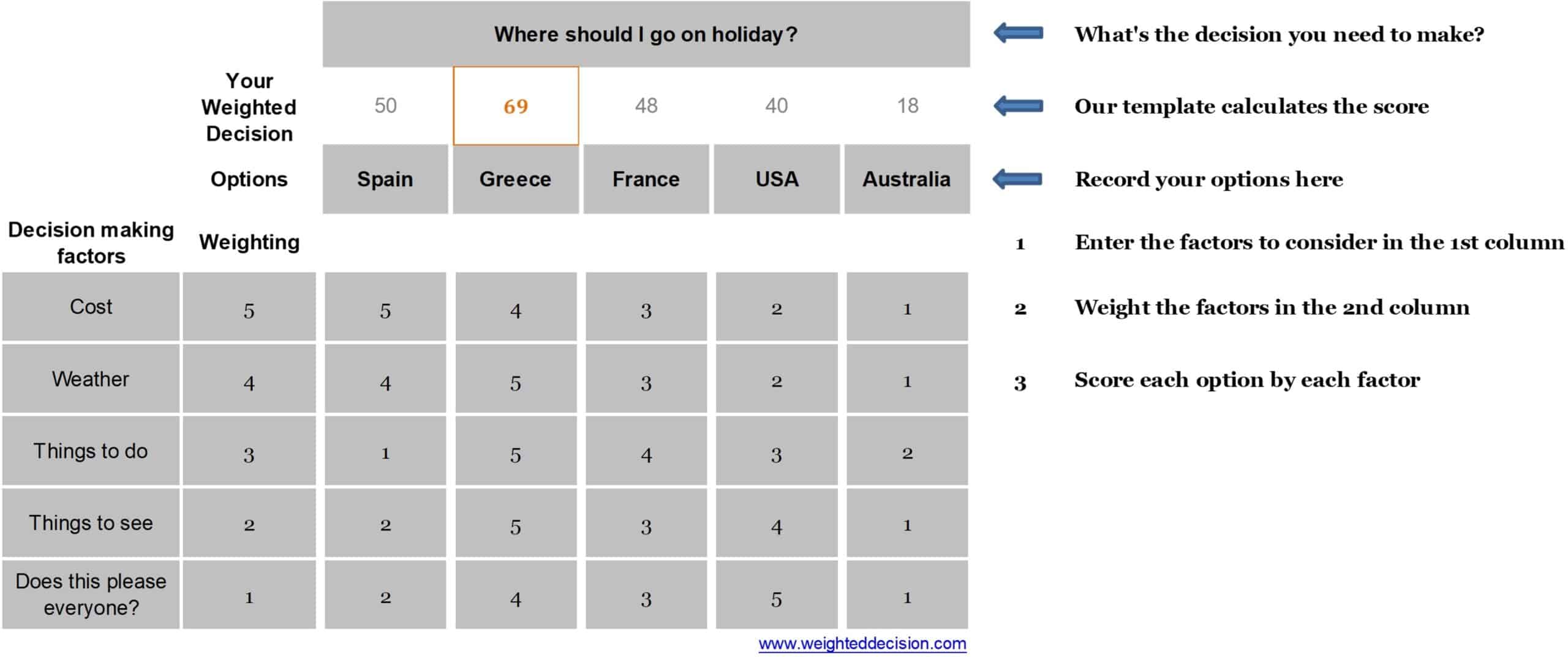Who’s going to win the T20 Cricket World Cup 2012?

This post is a few years old now but still shows how a weighted decision matrix can be applied to a sporting event. Why not use one to assess the teams of today instead.
UPDATE: Congratulations to the West Indies team who had a magnificent tournament and beat Sri Lanka in the final to become World T20 champions. We should have had more faith!
The cricket T20 world cup has arrived and is now a permanent fixture in the cricket sporting calendar. Regarded once as a bit Mickey Mouse it is now a showcase for some of the most talented cricketers in the world. Games can be won and lost by individuals on fire, whoever can forget that half century off 12 balls by Yuvraj Singh!
We’ve put the main contenders through the decision matrix below and think we’ve picked the winners but frankly anything could happen and probably will! Have a go yourself, all the fields are editable and let us know who you think is going to win and why.
Sri Lanka are the hosts which is always an advantage and makes them one of the favourites. Cricketers such as Tillekeratne Dilshan, Kumar Sangakkara, Mahela Jayawardene and Lasith Malinga are experienced talents and match winners on their day but will the retirement of Murali leave them short of a bit of class in the spinning department?
With strength in depth as a direct result of the IPL, India are favourites for the tournament. Playing in conditions that will suit them and with MS Dhoni at the helm they will be confident. Dhoni is recognised as the best one day captain around and if India can get their selection right they will be hard to beat.
England are the holders but they have a huge Achilles heel in their inability seemingly to play spin. Destroyed by Saeed Ajmal of Pakistan last winter Graham Gooch the batting coach has implemented a rigorous practice routine to overcome this deficiency. Victory in a warm up match this morning over Pakistan will help with confidence but only to a degree as Ajmal took 4 for 14 and England only made 111. The other distraction for England will be the non-selection of Kevin Pietersen, a decision they could come to regret?
South Africa have it all, the best top 5 or 6 in world cricket, in fine form following test victories over England in the summer and a fantastic pace bowling attack with Dale Steyn ranked at number one in the world. They will be tough to beat but will the Sri Lankan conditions suit them?
My final tip is Pakistan for some of the reasons mentioned above plus they will like the conditions. They have a strong record in the competition, an excellent bowling attack, team spirit seems good at the moment (although that can often be their Achilles heel) and if the batsmen can get going they could power their way to the final.
Of the other teams I have left out, Australia look the best although their form has dipped from the huge heights we have been use to over the years. New Zealand and the West Indies look to be short of talent especially in the bowling department although Chris Gayle remains one of the top batsmen in the world in this format. Of the minnows, only Ireland look capable of an upset with possibly Australia on the end of it?
What do you think? Use a weighted decision matrix template on excel to assess the options and tweet your friends to see what they think. Enjoy the tournament.

